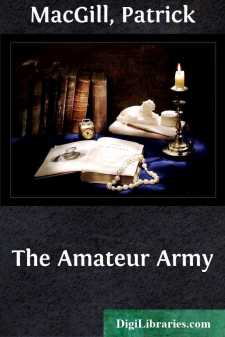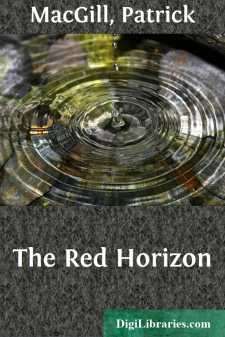Categories
- Antiques & Collectibles 13
- Architecture 36
- Art 48
- Bibles 22
- Biography & Autobiography 813
- Body, Mind & Spirit 142
- Business & Economics 28
- Children's Books 15
- Children's Fiction 12
- Computers 4
- Cooking 94
- Crafts & Hobbies 4
- Drama 346
- Education 46
- Family & Relationships 57
- Fiction 11828
- Games 19
- Gardening 17
- Health & Fitness 34
- History 1377
- House & Home 1
- Humor 147
- Juvenile Fiction 1873
- Juvenile Nonfiction 202
- Language Arts & Disciplines 88
- Law 16
- Literary Collections 686
- Literary Criticism 179
- Mathematics 13
- Medical 41
- Music 40
- Nature 179
- Non-Classifiable 1768
- Performing Arts 7
- Periodicals 1453
- Philosophy 64
- Photography 2
- Poetry 896
- Political Science 203
- Psychology 42
- Reference 154
- Religion 513
- Science 126
- Self-Help 84
- Social Science 81
- Sports & Recreation 34
- Study Aids 3
- Technology & Engineering 59
- Transportation 23
- Travel 463
- True Crime 29
Patrick MacGill
Patrick MacGill (1889–1963) was an Irish writer known for his works depicting the harsh realities of laborers and soldiers. He gained fame with his early books like "Children of the Dead End" (1914), a semi-autobiographical novel about his experiences as a farm laborer and navvy. MacGill served in World War I, and his wartime experiences inspired several works, including "The Great Push" (1916), which provided a vivid account of life in the trenches. Often referred to as "The Navvy Poet," MacGill's writing is marked by its raw realism and deep empathy for the working class.
Author's Books:
Sort by:
by:
Patrick MacGill
CHAPTER I What the psychological processes were that led to my enlisting in "Kitchener's Army" need not be inquired into. Few men could explain why they enlisted, and if they attempted they might only prove that they had done as a politician said the electorate does, the right thing from the wrong motive. There is a story told of an incident that occurred in Flanders, which shows clearly...
more...
by:
Patrick MacGill
RED HORIZON The Passing of the Regiment I wish the sea were not so wideThat parts me from my love;I wish the things men do belowWere known to God above. I wish that I were back againIn the glens of Donegal;They'll call me coward if I return,But a hero if I fall. "Is it better to be a living coward,Or thrice a hero dead?""It's better to go to sleep, my lad,"The Colour Sergeant...
more...



